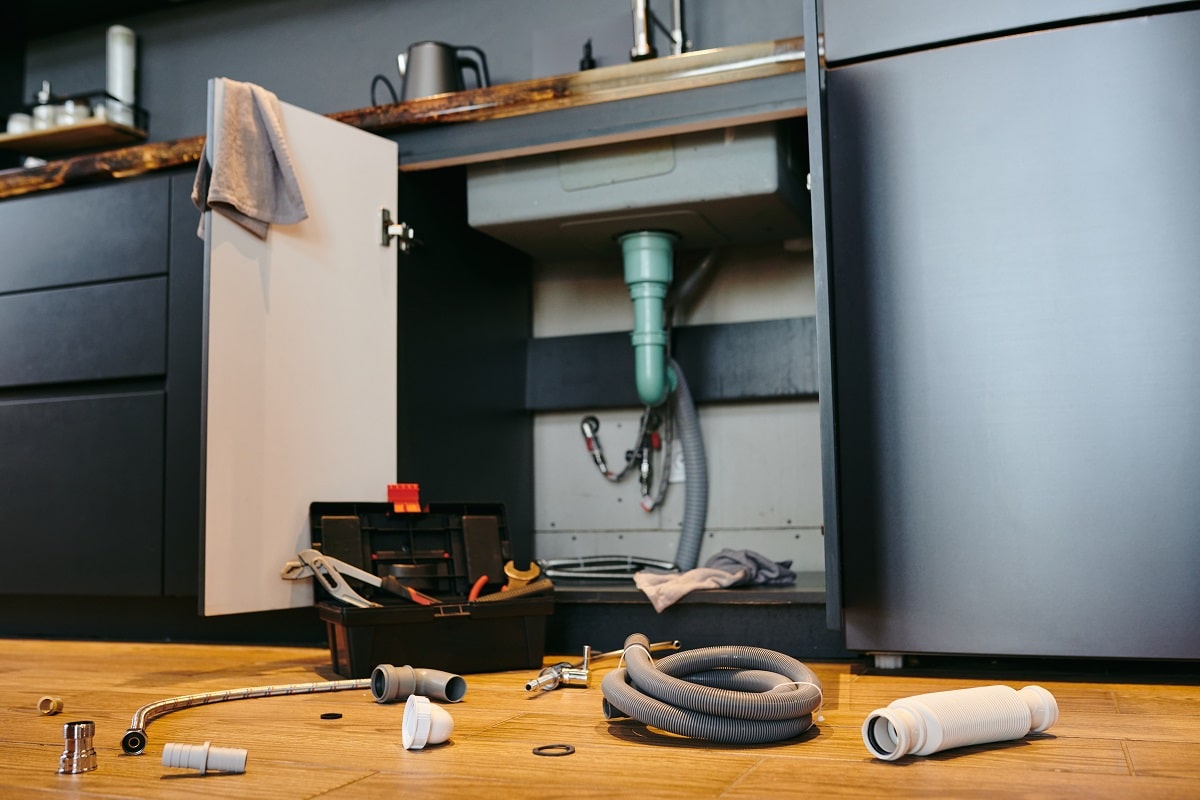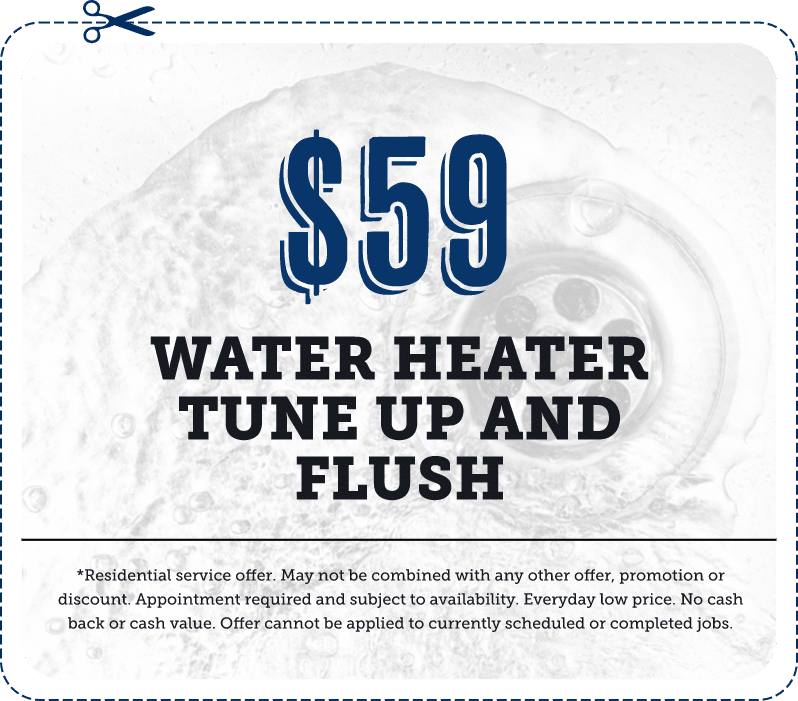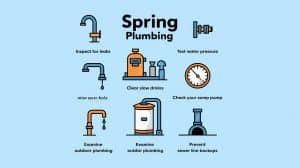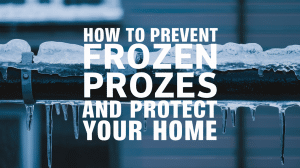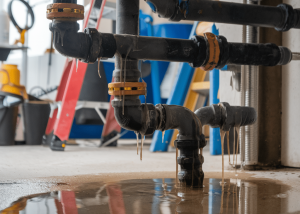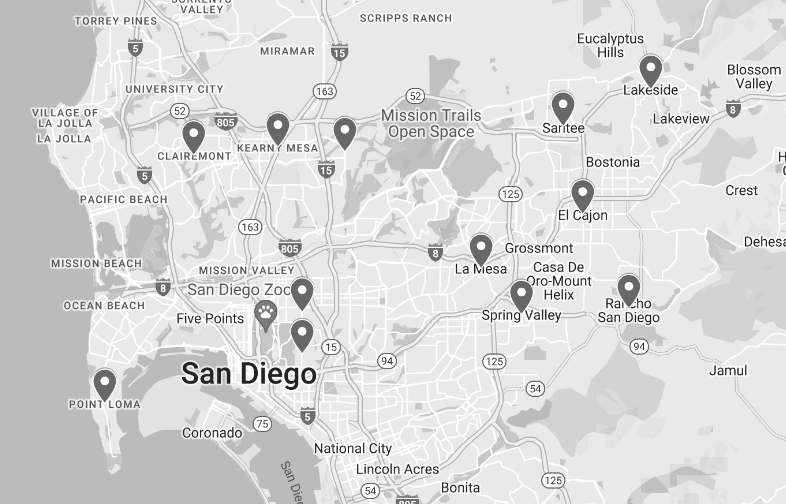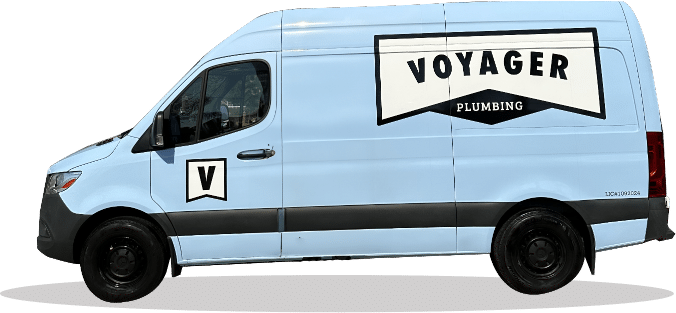Plumbing issues can lead to expensive repairs and unnecessary worry. Knowing the common problems and how to prevent them can save you time and money. Learn when to handle minor issues yourself and when to call a professional.
At Voyager Plumbing, we’re here to help, making homeownership less stressful. Let’s explore the top 10 plumbing problems and how to keep your system running smoothly. Get ready to feel like a plumbing pro!
Need help with your plumbing? Contact Voyager Plumbing today!
What Are Common Plumbing Problems?
Plumbing issues are a common concern for homeowners, disrupting daily life and potentially leading to costly repairs. Being aware of these common problems helps you manage your plumbing system, take preventative action, and know when to seek professional help.
1. Clogged Drains
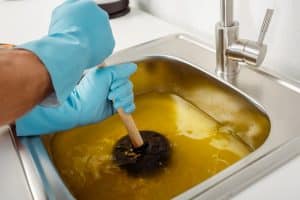
Prevention: Use drain screens to catch debris and avoid pouring grease or oil down the drain. Flush your drains monthly with a mix of baking soda and vinegar to keep them clear. If a clog persists, call a professional to avoid more serious plumbing issues.
2. Low Water Pressure
Low water pressure can make everyday tasks frustrating. It might be caused by leaks or dirty showerheads and faucets. Persistent low pressure can also be a sign of a larger plumbing issue like pipe corrosion or blockages.
Prevention: Clean faucet aerators and showerheads regularly to remove mineral buildup. Check for hidden leaks by monitoring your water meter for unusual activity. If the problem continues, it’s time to call in a pro.
3. Hot Water Problems
Cold showers can be a real headache. If you’re not getting hot water, check the pilot light and thermostat on your water heater. If the heater isn’t working properly, it can disrupt daily routines and lead to discomfort for your family.
Prevention: Flush your water heater annually to remove sediment buildup. Set the thermostat to the manufacturer’s recommended temperature to prevent overheating or inefficiency. Regular maintenance can ensure a reliable supply of hot water. If issues persist, get a professional inspection.
4. Running Toilets
A running toilet wastes water and increases your bills. The issue is usually a faulty flapper or valve, both of which are easy fixes. If left unchecked, running toilets can add up to a significant water bill increase over time.
Prevention: Regularly inspect the flapper for wear and replace it as needed. Adjust the float to maintain the correct water level and avoid overfilling. This simple maintenance can save you money on your water bill.
5. Leaky Pipes
Even a small leak can waste gallons of water. Look for signs like water stains or mold. Left untreated, small leaks can lead to significant water damage, mold growth, and increased utility bills.
Prevention: Inspect pipes regularly for signs of corrosion or damage. Tighten loose connections and replace worn-out washers or seals promptly. Fixing minor leaks quickly can prevent bigger issues, and calling a professional for major leaks helps avoid water damage.
6. Burst Pipes
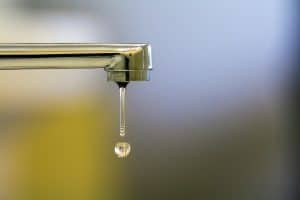
Prevention: Insulate your pipes during cold weather, especially in unheated areas like basements or attics. Let faucets drip slightly during freezing temperatures to relieve pressure and reduce the risk of bursting. Taking these simple precautions can prevent a costly emergency.
7. Sump Pump Failures
Your sump pump helps protect your basement during heavy rain. If it fails, it could result in basement flooding, potentially damaging your belongings and your home’s foundation.
Prevention: Test your sump pump regularly by pouring water into the pit to ensure it activates. Keep the pump clean and check for clogs in the discharge pipe. Installing a battery backup system ensures the pump keeps running during power outages, giving you peace of mind during storms.
8. Lawn Water Pooling
Water pooling in your yard may indicate an underground pipe break or drainage issue. This pooling can not only damage your lawn but may also cause serious foundation problems if ignored.
Prevention: Monitor your irrigation system for leaks or misaligned sprinkler heads. Check for soft spots in your yard after watering, which can indicate a problem. Early intervention helps protect your landscaping and saves you from costly repairs.
9. Bubbling Paint
Bubbling paint may signal moisture from a leaky pipe behind the walls. This can lead to mold growth, water damage, and a much more expensive repair job if left undetected.
Prevention: Regularly check for signs of leaks around plumbing fixtures and pipes. Use moisture detectors in high-risk areas like bathrooms and kitchens to catch hidden leaks early. Don’t just cover up the problem—investigate the cause to avoid bigger, more expensive repairs later.
10. Water Hammer
Water hammer is a banging noise in your pipes caused by sudden water pressure changes. This issue can not only be annoying but can also cause long-term damage to your plumbing if not addressed.
Prevention: Make sure your water pressure stays within the recommended range (40–60 psi). Install water hammer arrestors to absorb the shock of sudden pressure changes. Secure loose pipes to prevent movement that causes the noise. This can save you from costly plumbing damage over time.
Why Regular Plumbing Maintenance Is Important
Plumbing maintenance often gets overlooked until an issue arises, but regular upkeep is important for avoiding expensive repairs. Just like maintaining your car, keeping your plumbing in good shape can prevent larger, more expensive problems.
Simple checks—like clearing drains, testing your water pressure, and checking for leaks—can extend the life of your pipes and fixtures.
Maintenance Tips
- Pipe Inspections: Check pipes for visible signs of wear or corrosion.
- Washer Replacement: Replace washers and seals regularly.
- Water Bill Monitoring: Monitor your water bill for unexpected spikes, which could indicate a leak.
- Water Heater Care: Flush your water heater once a year to prevent sediment buildup.
- Professional Inspections: Schedule professional inspections every 1-2 years to catch hidden issues.
When to Call a Professional Plumber
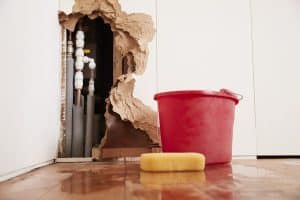
- Water damage: If you see significant water stains or mold, there may be hidden leaks.
- Sewage backup: A sewage backup is dangerous and requires immediate attention.
- Major pipe bursts: While small leaks can be fixed quickly, a burst pipe requires immediate action.
- Gas line issues: If you suspect a gas leak or smell gas, evacuate the area and call a professional immediately.
Protect Your Home from Plumbing Problems
Preventing plumbing problems is easier than you might think. Regular inspections, simple maintenance tasks, and taking action at the first sign of trouble can help you avoid major plumbing issues down the road.
If you’re ever unsure or face a more serious plumbing problem, don’t hesitate to call a professional. At Voyager Plumbing, we’re always here to help with all your plumbing needs. Stay proactive, and keep your home running smoothly.
For more plumbing tips and services, contact us today. Don’t wait for problems to worsen—take control of your plumbing now!

